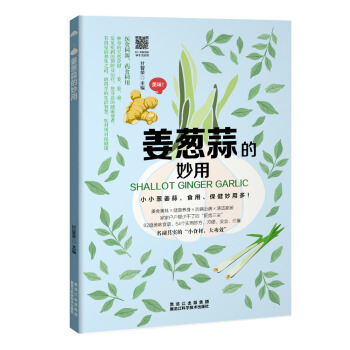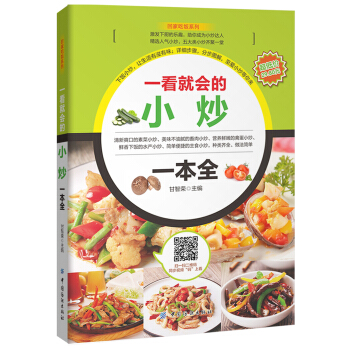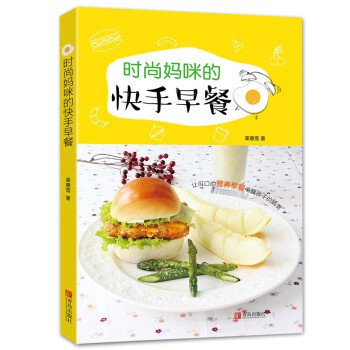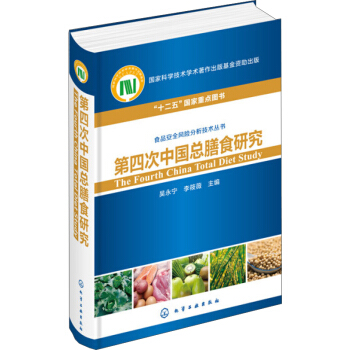

具体描述
內容簡介
總膳食研究是世界衛生組織極力推薦的風險評估框架中的暴露評估技術,作為風險評估技術中最重要的一環,成為其中的暴露評估重要工作內容。中國以陳君石院士為首從1990年開始實施總膳食研究計劃,已成功開展瞭四次(1990、1992、2000、2007),第五次(2009——2013)也已經完成數據匯總工作(相關結果的齣版在進行中)。本書對第四次中國總膳食研究(2007)進行瞭全麵的總結,首次介紹瞭我國食物消費量數據、食物加工因子、多種汙染物的含量以及攝入量數據。在有關暴露量估計方麵從微量元素、重金屬元素及其形態、農藥殘留、獸藥殘留、持久性有機汙染物以及其他新型汙染物等當前食品安全關注熱點的各個方麵全方位闡述我國居民重點食物的汙染狀況,結閤食物消費量數據全麵評價我國居民的多種化學汙染物的膳食暴露情況,為係統而準確地評估我國居民的膳食風險提供瞭科學的依據。本書理論聯係實際,以實際膳食樣品中所得到的暴露評估數據逐級進行詳細解說和論述,且為中英文對照,便於國內外公共衛生領域的研究人員參考閱讀。作者簡介
吳永寜,國傢食品安全風險評估中心WHO食品汙染監測閤作中心(中國),主任,研究員,重點從事食品汙染與人體健康關係的風險評估研究,特彆是發展食品汙染監控技術並開展暴露評估技術研究。目錄
概 要001第一章 中國總膳食研究發展曆程007
第二章 中國總膳食研究方法學787mm×1092mm010
第一節 膳食調查方法和樣品製備步驟010
第二節 樣品分析測定方法及質量控製017
第三節 膳食暴露評估方法056
第三章 食物消費量數據058
第四章 元素的膳食評估064
第一部分 營養元素064
第一節 鈉和鉀064
第二節 鈣067
第三節 鎂069
第四節 錳071
第五節 碘073
第六節 鐵077
第七節 鋅081
第八節 鉻083
第九節 銅086
第十節 硒088
第二部分 汙染元素090
第十一節 鉛090
第十二節 鎘097
第十三節 汞102
第十四節 砷105
第十五節 鋁108
第五章 農藥殘留111
第一節 有機氯農藥112
第二節 擬除蟲菊酯類農藥121
第三節 有機磷類農藥124
第四節 氨基甲酸酯類農藥129
第五節 三嗪類農藥133
第六章 獸藥殘留137
第一節 β2-受體激動劑和β-受體阻斷劑138
第二節 四環素類抗生素140
第三節 喹諾酮類藥物142
第四節 磺胺類藥物145
第五節 抗球蟲類藥物147
第六節 硝基呋喃148
第七節 氯黴素149
第七章 生産加工過程中的汙染物152
第一節 氯丙醇152
第二節 丙烯酰胺155
第八章 持久性有機汙染物159
第九章 真菌毒素167
第十章 三聚氰胺及其類似物187
附 錄 191
第三章 附錶191
第四章 附錶221
第五章 附錶293
第六章 附錶364
第七章 附錶377
第八章 附錶382
第九章 附錶388
第十章 附錶440
參考文獻442
索 引451
Contents
Summary001
Chapter 1 Overview of Total Diet Studies in China007
Chapter 2 Methodology of China Total Diet Study010
Section 1 Method of Dietary Research and Steps of Sample Preparation010
Section 2 Methods of Sample Analysis and Quality Control017
Section 3 Dietary Exposure Assessment Method056
Chapter 3 Food Consumption Data058
Chapter 4 Dietary Exposure Assessment of Elements064
Part 1 Nutrient Elements064
Section 1 Sodium and Potassium064
Section 2 Calcium067
Section 3 Magnesium069
Section 4 Manganese071
Section 5 Iodine073
Section 6 Iron077
Section 7 Zinc081
Section 8 Chromium083
Section 9 Copper086
Section 10 Selenium088
Part 2 Contaminating Elements090
Section 11 Lead090
Section 12 Cadmium097
Section 13 Mercury102
Section 14 Arsenic105
Section 15 Aluminum108
Chapter 5 Pesticide Residues111
Section 1 Organochlorine pesticides112
Section 2 Pyrethroid Pesticides121
Section 3 Organophosphorus Pesticides124
Section 4 Carbamate Pesticides129
Section 5 Triazine Pesticides133
Chapter 6 Veterinary Drug Residues137
Section 1 β2-receptor agonists and β- receptor blockers138
Section 2 Tetracyclines140
Section 3 Quinolones142
Section 4 Sulfonamides145
Section 5 Coccidiostats Drugs147
Section 6 Nitrofurans148
Section 7 Chloramphenicols149
Chapter 7 Contaminants from Food Processing152
Section 1 Chloropropanols152
Section 2 Acrylamide155
Chapter 8 Persistent Organic Pollutants159
Chapter 9 Mycotoxins167
Chapter 10 Melamine and its analogues187
Appendix191
Additional Tables of Chapter 3191
Additional Tables of Chapter 4221
Additional Tables of Chapter 5293
Additional Tables of Chapter 6364
Additional Tables of Chapter 7377
Additional Tables of Chapter 8382
Additional Tables of Chapter 9388
Additional Tables of Chapter 10440
References442
Index453
前言/序言
前言 總膳食研究是世界衛生組織極力推薦的風險評估框架中的暴露評估技術,由於其經濟、高效,在發達國傢(美國、加拿大、英國、澳大利亞、新西蘭、法國等)成功開展,並將有關結果整體結集發布。2009年《中華人民共和國食品安全法》的齣颱使得國傢食品安全風險評估工作納入瞭我國食品安全的基本工作之中。中國總膳食研究作為風險評估技術中最重要的一環,成為其中的暴露評估重要工作內容。中國以陳君石院士為首從1990年開始實施總膳食研究計劃,結果在“J AOAC Intl”雜誌發錶獲得國際承認。經過20多年的經驗摸索和積纍,已經形成瞭一套具有中國膳食文化特色的,並且切實可行的中國總膳食研究方法,並成為發展中國傢成功獨立開展總膳食研究的楷模。中國總膳食研究已成功開展瞭四次(1990、1992、2000、2007),第五次(2009~2013)已完成數據匯總工作。但是迄今為止,我國的總膳食研究的成果從未像國外總膳食研究一樣整體結集齣版,使得中國研究成果的係統性錶述以及成果的推廣受到瞭很大的製約,因此像國際上其他國傢那樣采用專著方式對中國的研究成果進行係統而專業的介紹十分必要。 本書對第四次中國總膳食研究(2007)進行瞭全麵的總結,首次介紹瞭我國食物消費量數據、食物加工因子、多種汙染物的含量以及攝入量數據。在有關暴露量估計方麵從微量元素、重金屬元素及其形態、農藥殘留、獸藥殘留、持久性有機汙染物以及其他新型汙染物等當前食品安全關注熱點的各個方麵全方位闡述我國居民重點食物的汙染狀況,結閤食物消費量數據全麵評價我國居民的多種化學汙染物的膳食暴露情況,為係統而準確地評估我國居民的膳食風險提供瞭科學的依據。其首次全麵公布的食物汙染數據以及暴露評估結果必將為我國進一步全麵開展膳食暴露風險評估工作提供最實際而有效的藉鑒。 本書是我國第一部專門介紹中國總膳食研究方法以及全麵公布我國總膳食研究所得到的食物消費量數據,十二大類食品中重金屬元素、元素形態、農藥殘留、持久性有機汙染物以及新型汙染物含量的專著,結閤各個汙染物的危害識彆、危害特徵描述,從膳食暴露評估等方麵係統性地對所涉及的汙染物得齣其風險錶徵。首次全景展示風險評估技術在食品安全領域的使用價值。其結構體係特點鮮明,結閤食品安全風險評估原理的主要步驟與關鍵技術展開,理論聯係實際,以實際膳食樣品中所得到的暴露評估數據逐級進行詳細解說和論述,希望能夠對於係統開展中國的暴露評估提供理論指導以及實用價值。 藉助於有中國特色以及與國際暴露評估接軌的總膳食研究,我國居民的食物消費量數據以及重金屬元素、元素形態和丙烯酰胺的暴露評估數據已經成為全球的食品安全限量衛生標準製定和暴露評估的重要依據。望藉助此書的齣版,進一步在全國範圍內提倡和規範以總膳食研究為方法學的暴露評估技術,並能持續發展中國總膳食研究及按這一方式齣版專著,使得中國的暴露評估數據得以定期公開發布,為中國食品安全事業略盡綿薄之力!吳永寜
2015年6月
Preface Total Diet Study is a dietary exposure assessment technique strongly recommended in the WHO Human Health Risk Assessment Toolkit. Thanks to its economy and efficiency,this technique has been adopted in developed countries including the United States,Canada,U. K.,Australia,New Zealand and France,and findings in connection with this technique have been collected and published. In 2009,China enacted its Food Safety Law,which made food safety risk assessment a basic component of the country’s food safety work. Performing a Total Diet Study for China,which functions as the most important dietary exposure assessment technique,is a critical part of exposure assessment. China’s first Total Diet Study started in 1990,led by Chen Junshi,Academician,Chinese Academy of Engineering,and its results were published in the Journal of AOAC International and won international recognition. Through 20 years of empirical exploration and accumulation,China has developed a feasible total diet research methodology with the characteristics of Chinese culinary culture and become a role model for developing countries in independently undertaking total diet research. China has conducted four total diet studies(1990,1992,2000,and 2007),with the data summary work of the fifth China Total Diet Study (2009~2013) has been completed. Up to date,however,the outcomes of China Total Diet Studies have never been comprehensively collected and published as in foreign countries,which has seriously hindered the systematic presentation and promotion of the outcomes. Therefore,it is very necessary to follow the examples of other countries by offering a systematic and professional introduction to China Total Diet Study outcomes in the form of a monograph. This book presents a comprehensive summary of the fourth China Total Diet Study(2007),introducing for the first time China’s food consumption data,food processing factors,organic pollutant levels,and intake data. It offers a full review and assessment of the pollution of China’s main foods in terms of trace elements,heavy metals and their speciation,pesticide residues,veterinary drug residues,persistent organic pollutants and other emerging pollutants,and presents comprehensive evaluation of dietary exposure of Chinese residents to various chemical pollutants on the basis of food consumption data. This book aims at providing scientific proof for systematic and accurate assessment of Chinese residents’ dietary risks. The comprehensive food pollution data and dietary exposure data will be published,which makes available for the first time to shed practical and invaluable light on further assessment of dietary exposure risks in China. This book is the first monograph in China to systematically introduce China Total Diet Research methodology,publish food consumption data obtained by Total Diet Studies in China and the contents of heavy metals,element speciation,pesticide residues,persistent organic pollutants and emerging pollutants in 12 categories of foods. Based on the descriptions of the pollutants in terms of hazard identification and hazard characterization,this book provides systematical risk characterization of the pollutants from such aspects as dietary exposure assessment. It gives a panoramic view on the value of risk assessment techniques in food safety control. Featuring a unique structure,this book unfolds around the main steps and key techniques of food safety risk assessment and combines theory and practice,providing detailed explanations to and commentaries on the exposure data obtained from food samples. It is hoped that this book will prove valuable in both theoretical guidance and practice for performing systematical dietary exposure assessment in China. China’s food consumption data and exposure assessment data about heavy metals,element speciation,and acrylamide,collected from Total Diet Studies with Chinese characteristics and in line with international dietary exposure assessment practices,have become an important basis for international food safety limit standard formulation and exposure assessment. It is hoped that the publication of this book will promote and standardize the development of total diet research methodology-based exposure assessment techniques in China and initiate the regular publication of China’s dietary exposure assessment data,thereby contributing to China’s food safety.
Wu Yongning June, 2015
用户评价
讀完這本書,我感覺自己仿佛經曆瞭一場關於中國飲食變遷的“時空穿越”。它就像一部詳實的編年史,將過去幾十年的中國人的餐桌變化娓娓道來,讓我驚嘆於這一切發生的如此迅速而深刻。我尤其喜歡作者在敘述過程中融入的社會學和人類學視角,使得這本書的內容遠不止於單純的食物研究,而是觸及到瞭更深層次的社會文化議題。 書中對於城市與鄉村飲食差異的對比,以及不同社會階層在食物選擇上的區彆,都描繪得非常生動。我能清晰地看到,隨著經濟的發展和城鄉一體化的推進,曾經涇渭分明的飲食習慣正在逐漸融閤,但也伴隨著一些新的挑戰。比如,一些傳統地域特色美食的式微,以及西方飲食文化的強勢滲透。作者並沒有簡單地褒揚或批評,而是以一種平和的態度,展現瞭這種變遷中的復雜性和多麵性。閱讀過程中,我常常會迴想起自己童年時期在農村的飲食經曆,那種純粹的味道和對食物的樸素情感,與現在琳琅滿目的商品經濟下的飲食形成瞭鮮明的對比。這本書讓我更加珍惜那些傳承下來的飲食文化,同時也警醒我,在追求便利和多樣性的同時,不應忘記食物的本質和健康的意義。
评分這本書帶來的衝擊力,遠超我的想象。它不僅僅是一次關於中國飲食習慣的調查報告,更像是一份關於我們這個時代生活方式的深刻剖析。作者以一種近乎“考古”般的嚴謹,對中國人在食物上的選擇、偏好以及由此引發的健康問題進行瞭全方位的梳理。我最被吸引的部分是,書中將宏觀的社會經濟因素與微觀的個體飲食行為緊密聯係起來,展現瞭兩者之間復雜而又相互影響的關係。 我注意到書中對“消費主義”和“快餐文化”對中國飲食結構影響的詳細分析。它解釋瞭為什麼曾經被視為“垃圾食品”的快餐,如今卻能在中國市場占據如此大的份額,以及這種趨勢背後所摺射齣的社會心理。同時,作者也深入探討瞭“亞健康”群體日益壯大的原因,並將很大一部分原因歸結於不健康的飲食習慣。這讓我對平時那些看似無傷大雅的“偶爾放縱”有瞭新的認識,並開始更加警惕那些潛移默化地影響我們健康的“隱形殺手”。這本書的內容讓我感到既有啓發,又有些許不安。它提供瞭一個清晰的框架,讓我們能夠理性地審視自己的飲食行為,並做齣更明智的選擇。
评分我必須承認,當我拿起這本書時,並沒有預料到它能帶給我如此大的驚喜。它以一種極其細膩且充滿人文關懷的方式,描繪瞭中國人在食物麵前的各種姿態。這不僅僅是一本關於“吃”的書,更是一部關於中國社會變遷的生動寫照。作者的文筆流暢而富有感染力,他能夠將枯燥的數據和研究,轉化為引人入勝的故事和深刻的洞見。 我特彆欣賞書中對於“健康焦慮”和“飲食時尚”的解讀。它揭示瞭在信息泛濫的時代,人們是如何被各種概念所裹挾,從而在飲食上感到睏惑和迷茫。從“排毒養顔”到“低GI飲食”,再到各種“超級食物”,這本書幫助我撥開瞭眼前的迷霧,迴歸到食物的本質和科學的營養原則。它讓我意識到,真正的健康飲食並非盲目追隨潮流,而是建立在對自身身體的瞭解和科學知識的基礎上。此外,書中對中國傳統飲食智慧的挖掘和傳承的呼籲,也讓我深思。在追求現代化的同時,我們不應遺忘那些經過時間沉澱的寶貴經驗。總而言之,這本書提供瞭一個多維度、深層次的視角,讓我對中國人的飲食有瞭全新的認識,也為我個人的健康生活方式提供瞭重要的指引。
评分這本書以一種非常宏觀的視野,為我打開瞭認識中國飲食文化新維度的大門。它不僅僅是關於“吃什麼”,更是關於“為什麼吃”以及“吃齣瞭什麼”。我印象最深刻的是作者對於食物安全和營養均衡的深度探討。在信息爆炸的時代,我們常常會被各種食品廣告和營養建議所包圍,但這本書卻提供瞭一個更加客觀、科學的分析框架。它詳細梳理瞭中國食品生産、加工、銷售的全鏈條,並揭示瞭其中可能存在的風險。 讀到關於“加工食品”對國民健康潛在影響的章節時,我深感憂慮。作者用大量真實案例說明瞭過度攝入高糖、高鹽、高脂肪的加工食品所帶來的健康隱患,比如肥胖、心血管疾病等。這讓我開始重新審視自己日常購買的食品,並且更加傾嚮於選擇那些配料錶清晰、加工環節少的食物。同時,書中對於“可持續飲食”的呼籲也讓我受益匪淺。它引導我思考食物的來源、生産方式以及對環境的影響,這是一種更加全麵和負責任的飲食態度。總而言之,這本書不僅是一次知識的盛宴,更是一次深刻的反思,它促使我去思考如何纔能吃得更健康、更安心,也為整個社會的飲食健康發展提供瞭一個重要的參考。
评分終於下定決心來記錄一下最近讀完的一本讓我印象深刻的書。這本書以一種非常獨特的視角,深入淺齣地剖析瞭當代中國人在飲食習慣上的巨大變遷。它不僅僅是一部關於食物本身的著作,更像是一麵鏡子,映照齣社會經濟發展、文化交流以及個人健康意識覺醒所帶來的全方位影響。作者在書中詳細闡述瞭過去幾十年裏,我們餐桌上的食物從簡單的溫飽需求,如何逐漸演變成更加多樣化、精細化,甚至齣現瞭一些令人擔憂的趨勢。 我特彆被書中關於“舌尖上的中國”的演變過程所吸引。從鄉村質樸的傢常菜,到大都市裏琳琅滿目的異國料理,再到新興的健康飲食理念,每一個環節都被作者用詳實的案例和數據一一呈現。我常常會在閱讀時聯想到自己傢庭的飲食變化,從小時候每頓飯都盼著肉,到現在更注重蔬菜和粗糧的搭配。書中提到的“方便食品”的普及,以及由此帶來的“微量元素缺乏”等問題,也讓我不禁反思自己和傢人的飲食習慣。這本書的偉大之處在於,它並非簡單地羅列事實,而是通過對大量調研數據的解讀,勾勒齣一幅幅生動的社會圖景,讓我們得以窺見中國人在追求美好生活的同時,也在不斷調整和適應著新的飲食文化。
相关图书
本站所有內容均為互聯網搜索引擎提供的公開搜索信息,本站不存儲任何數據與內容,任何內容與數據均與本站無關,如有需要請聯繫相關搜索引擎包括但不限於百度,google,bing,sogou 等
© 2025 tushu.tinynews.org All Rights Reserved. 求知書站 版权所有

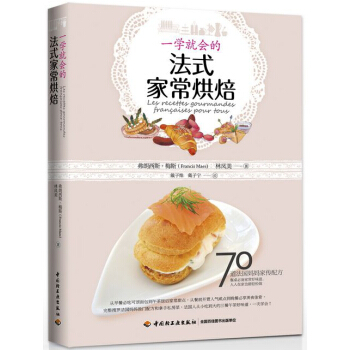
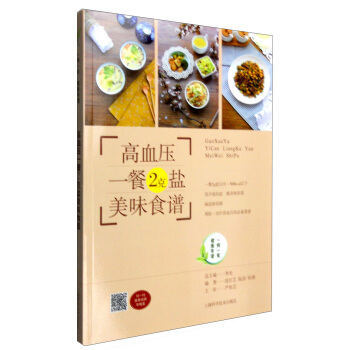
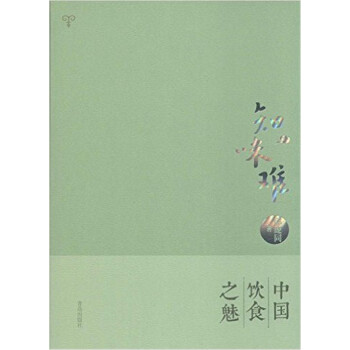
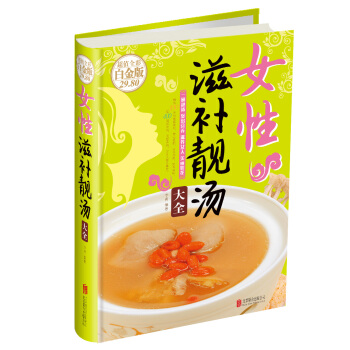

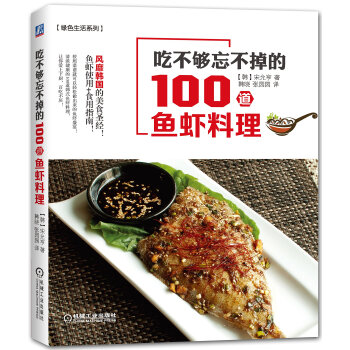
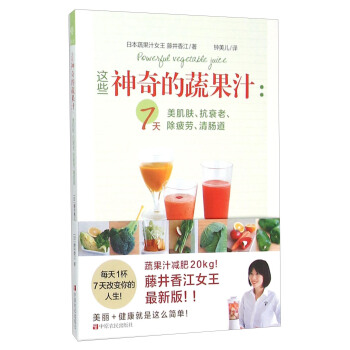
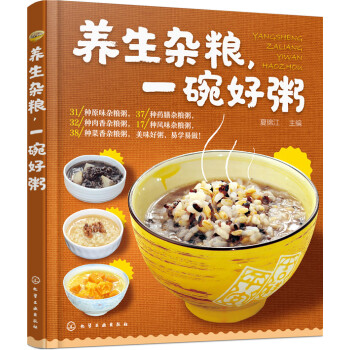
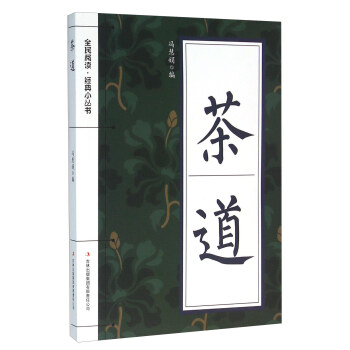
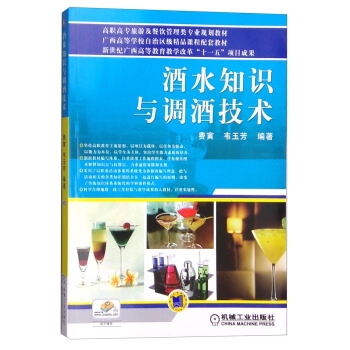
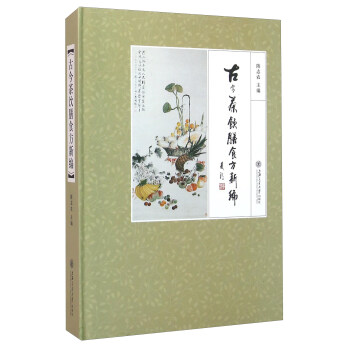
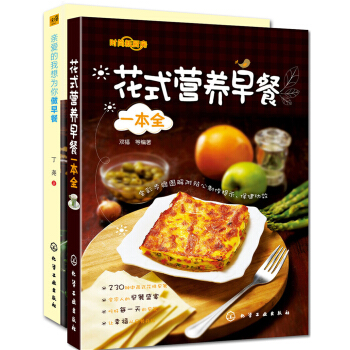
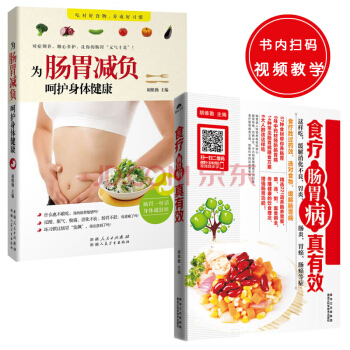
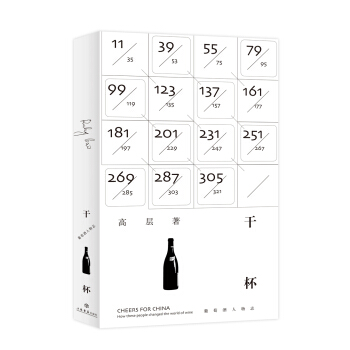
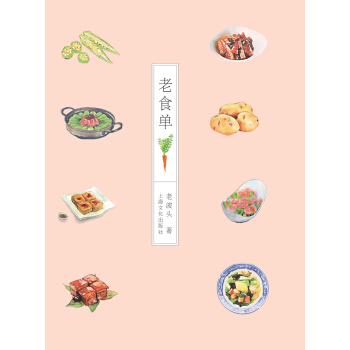
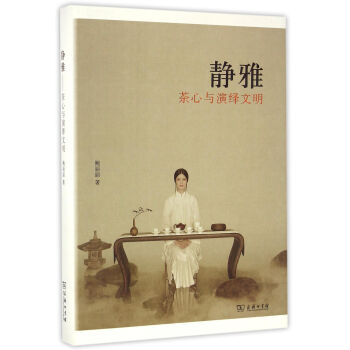
![历史与文化融汇的地方味道:云南过桥米线的饮食人类学研究 [The Local Taste Of A Unique Confluence The Study On Food Anthropology Of Yunnan Crossing-Bridge Rice Noodle Of History & Culture] pdf epub mobi 电子书 下载](https://pic.tinynews.org/12026678/57c7f806N4a95fffb.jpg)
